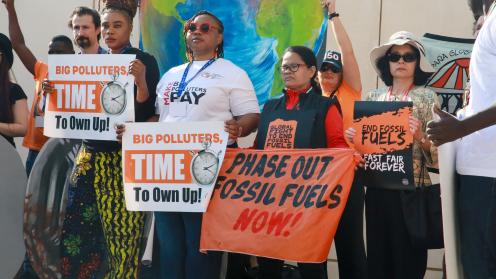Climate Change
Climate change is the long-term alteration of temperature and weather patterns. Unexpected changes in weather patterns make it difficult to maintain and grow crops in regions that rely on farming because expected temperature and rainfall levels can no longer be counted on. Climate change has also been connected with other damaging weather events, such as more frequent and more intense hurricanes, typhoons, floods, downpours, and winter storms. Climate change is largely caused by human activity, primarily the burning of fossil fuels like oil, coal, and natural gas. Carbon emissions from fossil fuels, methane, and nitrous oxide, among others, are called “greenhouse gases.” When released into the Earth’s atmosphere, these gases trap heat from the sun’s rays causing Earth’s average temperature to rise. This rise in the planet's temperature is called global warming. While the climate has continually changed throughout the Earth's history, it has usually been a slow process over thousands of years. Climate change caused by human activity is occurring at a much faster and more dangerous rate.
